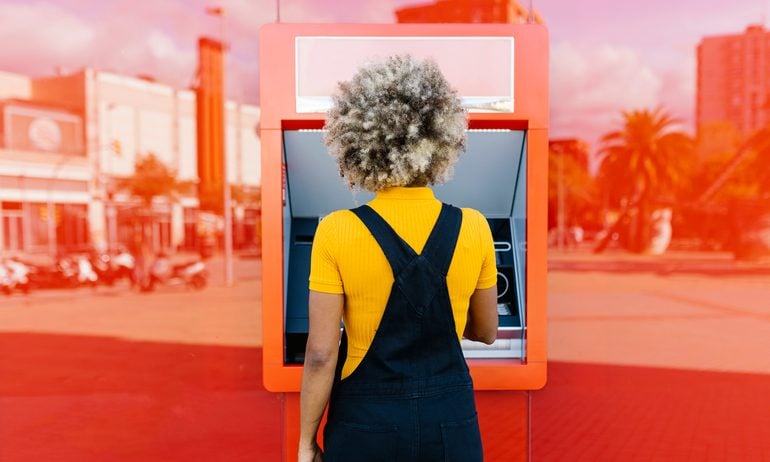What Is a Deposit?
A deposit is the money you entrust to a financial institution for safekeeping.

Many, or all, of the products featured on this page are from our advertising partners who compensate us when you take certain actions on our website or click to take an action on their website. However, this does not influence our evaluations. Our opinions are our own. Here is a list of our partners and here's how we make money.
What does deposit mean?
A deposit is the amount of money you give to a financial institution, such as a bank, to hold for you in an account. Individuals and businesses make deposits every day by transferring their funds into banking accounts. Depending on the account type, depositors can earn interest on their money. Deposits can be made on a one-time or recurring basis.
The word "deposit" can also refer to money that you pay upfront to secure receipt of a good or service. For example, a renter may be asked to pay their landlord a security deposit before moving in.
Types of deposits
When you deposit money into your account, that money belongs to you. You can withdraw it and transfer it, but there may be limitations depending on the type of deposit you make.
The two main types of deposits are:
Demand deposits, which allow you to withdraw your funds on demand. Demand deposit accounts are most commonly associated with checking accounts, and some accounts may require up to six days of notice prior to withdrawal. These types of accounts typically pay little or no interest due to the flexibility they offer.
Time deposits, which means you cannot move your deposits for a set period of time unless you pay an early withdrawal penalty. In exchange, a bank or credit union will pay you a higher interest rate on those funds for the duration of the term. One common time deposit account is a certificate of deposit.
Are my deposits safe?
To make a deposit, you’ll need to first open a banking account at a financial institution, such as a bank or a credit union. Before you do so, check to see if the institution is insured.
The Federal Deposit Insurance Corp. and the National Credit Union Administration are independent agencies that offer deposit insurance for federally insured banks and credit unions. The insurance kicks in when the rare failure of a bank or credit union occurs. A failure typically occurs when the institution is no longer able to fulfill its obligations, such as during a bank run.
The insurance offered by the two agencies is similar, with the primary difference being that the FDIC insures bank deposits and the NCUA insures credit union deposits. Here's how they're alike:
Both insure only deposit accounts — such as checking and savings accounts, as well as certificates of deposit.
Each person is insured for $250,000 per institution, per ownership category. Common types of ownership categories include single-owned accounts, joint accounts and certain retirement accounts.
Direct deposits
Direct deposits refer to an electronic transfer of funds from one bank account — belonging to an individual or an organization — to yours. The payment goes through an automated process, and it requires you to share your bank routing number and account number with the other party.
One reason people choose to receive direct deposits is the convenience it offers. For example, many employers will offer employees a direct deposit option to receive their pay. Instead of getting a check or cash, the funds will be transferred electronically into your bank account. Some accounts offer early direct deposit, giving you access to your paycheck up to two days in advance.
Or if you received a tax refund from the IRS, you can opt to receive it via direct deposit. Rather than waiting for a check to come in the mail, you could have access to the funds within days.
How to make a deposit
There are several ways to make a deposit, which can vary based on how and where you want to transfer your funds. Most people deposit funds by transferring cash to their account or cashing a check.
If your account is with a traditional financial institution, you can deposit cash and checks at one of their physical branches or ATMs. Many institutions also allow mobile check deposits through their app.
However, depositing cash at an online bank is more complicated and requires creative workarounds, such as depositing the funds into an account at a traditional institution and transferring it.

